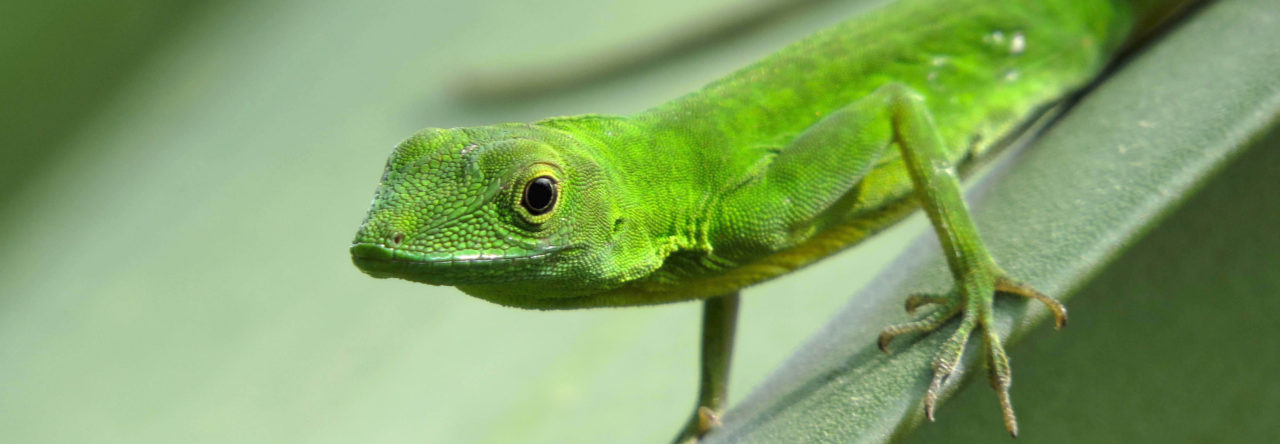Several years ago, Calsbeek and Bonneaud published a provocative paper in which they showed that females preferentially used sperm from large males to produce male offspring and from small males to produce females. An obvious question is: how do they do this? Anoles are known to have sperm storage and to be able to produce fertile young many months after mating, but how can females “choose” which male’s sperm to use to fertilize offspring? Presumably, in some way the female would have to keep track of which sperm came from which male, and what the phenotypic attributes are of those males.
Dartmouth graduate student Katie Duryea reported ongoing work aimed at addressing these questions. Taking a two-pronged approach, she is looking at the genetic basis underlying reproduction in anoles. First, she is examining gene expression in the reproductive tract of female Anolis carolinensis, comparing recently mated and unmated individuals. Preliminary results revealed more than 5000 genes that appear to be upregulated, based on transcript abundance, in the females. Examination of gene ontologies reveals interesting patterns of what types of genes are upregulated, with apparent similarities to similar work in Drosophila. Second, taking a candidate gene approach focusing on serine proteinase genes, Duryea is comparing differentiation between A. carolinensis and A. sagrei. Preliminary results for one gene show a relatively large number of synonymous changes, suggestive of the action of natural selection.
Clearly, this work is in its early stages, but results so far are tantalizing and provide another example of how the anole genome will prove useful in addressing outstanding questions in anole evolution and behavioral ecology.
- New Article on Anolis roosevelti and the Question of Its Survival - March 16, 2024
- Lizard Diving Champions: Trading Heat For Safety Underwater - March 15, 2024
- Do Large Brown Anoles Get the Most Mating Opportunities? - January 6, 2024


Katie Duryea
Thank you for this lovely post! As mentioned, this is still a work in progress, but I would be happy to address questions and comments either here or thru email (duryea@dartmouth.edu).
Cheers!
Katie